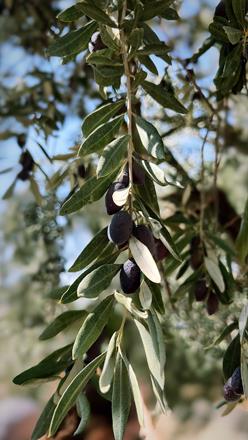(MENAFN- Jordan Times) AMMAN – Since October 7, escalating cross-border violence in southern Lebanon has devastated the lives of tens of thousands of families and forced more than 86,000 people, including 31,000 children, to flee their homes.
As the International Organization for Migration reports, this crisis has not only exacerbated the humanitarian crisis in Lebanon, but has also hit the heart of Lebanon’s agricultural sector – the olive industry.
Destruction of the Lebanese olive sector
The loss of over 47,000 olive trees during the crucial harvest season has destroyed the livelihoods of over 110,000 farmers and ripped apart the economic fabric of a country where olives contribute about 7 percent to agricultural GDP. With 12 million trees covering almost a quarter of Lebanon’s arable land, the destruction of this vital crop is a severe blow to both the country’s economy and its cultural identity.
The destruction goes beyond the olive groves. Lebanon’s Environment Ministry has reported alarming levels of heavy metals and phosphorus in areas bombarded by Israeli artillery and white phosphorus bombs. These toxic substances pose a serious threat to civilian health and have rendered vast areas of land unusable for cultivation. Many civilians have already been hospitalized, and the United Nations has documented widespread damage to southern Lebanon’s agriculture, including soil erosion, chemical contamination and the constant threat of unexploded ordnance.
White phosphorus: intentional damage
The use of white phosphorus, a chemical incendiary known for its horrific effects, has compounded the tragedy. According to Human Rights Watch, white phosphorus ignites at 815°C, causing burns that penetrate deep into the flesh, often to the bone, leading to infection, respiratory damage and organ failure.
The effects on the environment are equally catastrophic: the phosphoric acid released during the detonation is highly corrosive and leads to soil acidification, impairs plant growth and can also contaminate water.
The European-Mediterranean Human Rights Monitor has condemned its use as a violation of international humanitarian law and stressed that its use in civilian areas should be strictly prohibited. Despite international bans, Human Rights Watch has confirmed its use by Israeli forces during military operations in Lebanon and the Gaza Strip on October 10 and 11, 2023. However, the Israeli military denies these allegations and insists that its smoke grenades do not contain white phosphorus.
Olive tree: Levantine heritage
The olive tree, an ancient symbol of peace and resilience, occupies a unique place in the cultural heritage of the Levant region, especially for Lebanese and Palestinians.
These trees, some of which are over 2,000 years old, have been part of the Mediterranean landscape for thousands of years and have witnessed the rise and fall of many civilizations, including the Phoenicians, Romans, Byzantines and Ottomans, all of whom have left their mark on the region.
The destruction of these trees, which are closely linked to the cultural and spiritual identity of the Levant, adds an even more poignant dimension to the suffering. “People have a spiritual connection with the olive tree: our ancestors planted it and today we are losing it,” Lebanese Agriculture Minister Abbas Hajj Hassan told the international press.
According to the Lebanese Ministry of Agriculture, the conflict has affected 60 villages, destroyed the livelihoods of countless families and undermined a millennia-old tradition.
Olives from Palestinian farmers
For Palestinian farmers, who are constantly threatened by Israeli settlers, olives are more than just a source of income – they symbolize their roots in their ancestral land. Since the Nakba in 1948, the olive tree has become a symbol of Palestinian resilience.
Numerous human rights organizations, including B’tselem, an Israeli organization that addresses human rights violations in the occupied Palestinian territories, have documented regular attacks by Israeli settlers on Palestinian farmers. These attacks include preventing them from accessing their land, stealing their olives and agricultural equipment, and destroying their olive trees – actions that blatantly violate UN resolutions.
A broader cultural loss
The origins of olive trees can be traced back to the Levant, where inscriptions, olive pits and olive presses reveal their deep historical roots. The Levant is home to some of the oldest olive trees in the world, with a cultivation history dating back to the early Bronze Age.
The journey of the olive from the Levant to Greece, Spain and other Mediterranean regions connects the ancient civilizations of the basin, from the Canaanites and Phoenicians to the Romans, Byzantines and many more.
In all of these ancient societies, olive cultivation flourished, a crop that remains a staple of Mediterranean life to this day and is considered a symbol of endurance throughout centuries of conflict and change.
Cultural and ecological toll
The olive tree, which has been a symbol of peace, resilience and cultural continuity for thousands of years, is today a testament to the human and ecological consequences of the conflict.
The ongoing devastation of Lebanon’s olive growing sector is more than just another economic disaster; it is a grave loss to the cultural and historical fabric of the region. These olive trees, deeply rooted in the soil of history, now face a future as uncertain as the people who have tended them for generations.
Today, the Levant’s olive groves face unprecedented threats. Fires sparked by Israeli bombings have scorched farmland and rendered it unusable for cultivation, dealing a devastating blow to the region’s agriculture. This destruction reflects a broader pattern of violence and environmental degradation plaguing the region, threatening not only the land but also the identity and heritage of its people.
MENAFN28082024000028011005ID1108613365
Disclaimer:
MENAFN provides the information “as is” without warranty of any kind. We assume no responsibility or liability for the accuracy, content, images, videos, licenses, completeness, legality or reliability of the information contained in this article. If you have any complaints or copyright issues related to this article, please contact the provider above.





